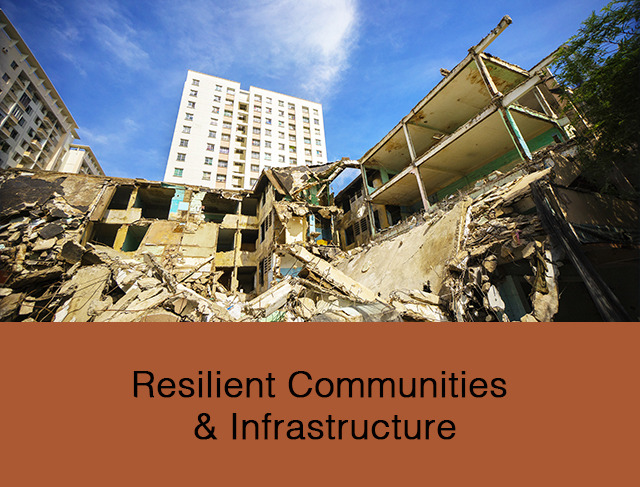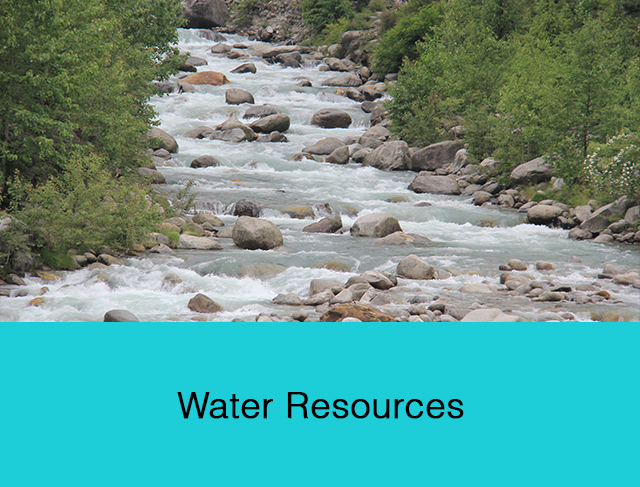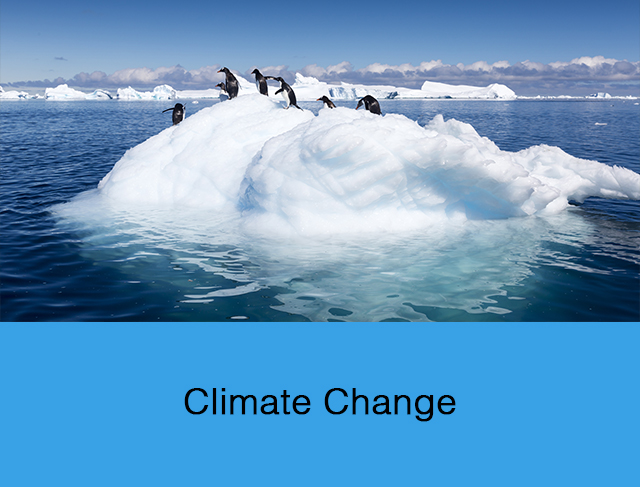
Sustainability
Strengthening resilience by mainstreaming disaster risk reduction and climate change adaptation strategies
Within Sustainability practice, we are focusing on building resilience to combat disaster and climate risk. The increasing frequency and intensity of disasters globally have renewed the urgency to implement disaster and climate risk reduction strategies to enhance disaster preparedness for effective response and recovery.
Our services are very closely aligned to the Sendai Framework focusing on reducing causalities and people affected by disasters, improving the resilience of infrastructure, setting up early warning systems with impact-based forecasting, reducing economic losses, and enabling disaster risk governance. It’s directly related to making the world more resilient to climate change.
RMSI supports these goals through its technological solutions focused on strengthening disaster risk governance to increase community resilience and build back better for a sustainable future. We have been working with the world’s local and national governments, multilateral funding agencies, and private entities to implement these solutions for the last two decades.






Zero people affected due to natural or man-made hazards
Zero economic loss to global GDP
Zero deaths from entrapment during earthquake
Zero deaths from drowning in floods
Zero lives unsecured at cyclone landfall
RMSI has applied its domain expertise to develop innovative frameworks for multi-hazard risk assessment, including the impact of climate change on hydro-meteorological hazards, impact-based forecasting, Decision Support System (DSS) for emergency management, and mitigation & adaptation planning. RMSI has also implemented innovative approaches to food security through climate-based advisories to farmers and agri-value chain management through software platforms.
RMSI has been building models that are a combination of standard statistical modeling techniques, numerical models, and machine learning-based models to achieve all this. Through these approaches, we have modeled water availability, flood, cyclone, earthquake, Tsunami, avalanche, drought, landslide, forest fire, urban fire, industrial hazards, etc.
With more than two decades of experience, RMSI has worked extensively with state & federal governments and multilateral funding agencies, including the World Bank, IFC, UNDP, UNISDR, ADB, and FAO.
Solutions




Strong experience of working with developing and least developed nations. Automated frameworks for multi-hazard risk assessments, impact based forecasting and emergency management decision support system (DSS) help us deliver quality solutions in minimum time.
Experience of modeling some of the largest river basins of the world such as Ganges, Nile, and complex geographies. We have developed focused methodologies for estimation of water availability and basin planning.
Assessing climate risk at higher resolutions such as ward level within cities, group of villages. Experience of developing climate information systems at regional, national & global levels. Strong credentials in assessing impact of climate change on hydrometeorological hazards.
Solutions for sustainable agriculture development and food security. Integrated agri value chain platforms and systems that provide agri advisories to support climate smart agriculture. Pilot studies for crop insurance conducted in several countries across the globe.
RMSI provides solutions across the entire spectrum of risk and disaster management cycle encompassing multi-hazard risk assessment and its applications for mitigation, preparedness, response and recovery.
RMSI has developed an innovative framework of ‘Decision Support System for Disaster Risk Reduction’ that utilizes the outcomes of multi-hazard risk assessment for activities performed for mitigation, preparedness, response and recovery. This framework has been successfully implemented in several nations of the world and has proven to be an impactful tool for mainstreaming disaster risk reduction. Key services include:
- Exposure data development (population, buildings, infrastructure)
- Analysis for urban resilience and local resilience action plan
- Multi-hazard risk assessment (earthquake, tsunami, cyclone and surge, flood, drought, landslide, fire)
- Socio-economic vulnerability analysis
- Development of risk atlas and decision support systems
- Mitigation planning and impact-based early warning systems
RMSI provides technical and consulting services in the areas of water resource management, flood risk assessment and mitigation planning at urban, catchment and national levels. RMSI adopts an integrated approach using simulation and modeling techniques backed by GIS and IT to provide cost effective solutions. Our expertise lies in hydrology, hydraulics, probabilistic hydro-meteorological hazard modeling, and climate change impact assessment.
RMSI has extensive experience of working with multi-lateral funding agencies, governments and private enterprises engaged in water resources sector. We have a notable experience of having modeled various large river basins throughout the world, such as Zambezi, Limpopo, Mekong, Cagayan, and Ganges. Key services include:
- Estimation of probable maximum flood (PMF)
- Strategic basin planning
- Assessment of hydropower potential
- Probable maximum precipitation atlas
- Dam break inundation analysis
- Flood risk assessment for industries
RMSI provides technical consulting to facilitate developing countries in addressing risks associated with a changing climate. Our experts help develop climate change adaptation plans and strategies that protect and safeguard the livelihood of their communities and societies.
Our solutions include development of climate scenarios at regional and local level through downscaling techniques, sector-specific vulnerability and risk assessment, and cost effective adaptation strategies. Key services include:
- Climate change scenario analysis
- Assessing impact of climate change on hydrometeorological hazards
- Climate change impact assessment (agriculture, water resources, forests, infrastructure)
- Prioritizing local/ regional level adaptation measures
- Climate information systems
- Institutional framework analysis and recommendations
- Analysing and facilitating the role of private sector
RMSI provides integrated agri-intelligence solutions for the agri-value chain to address impending issues such as food security, sustainable livelihood development and climate smart agriculture. We have a multidisciplinary team comprising of agronomists, pedologists, entomologists, plantation experts, agri-economists, agri-statisticians, and soil and livelihood experts.
RMSI adopts a conjunctive approach of using geospatial technology and statistical methods coupled with field surveys to deliver high value agri-solutions. Key services include:
- IT solution for agro-weather advisory dissemination
- Climate risk assessment and adaptation
- Platform for digitalisation of agri value chain
- Piloting crop insurance programs
- Agro-advisory services
- Crop acreage estimation and production forecast
- Crop progress monitoring
- Land suitability analysis
- Agri-value chain analysis
